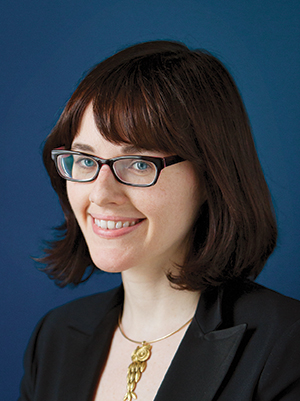
Michelle Johnston-Fleece Photo by Anthony DiPietro
WHEN MY HUSBAND, MATTHEW, WAS SICK, I pushed myself so hard that sometimes my body just shut down, leaving me confined to bed or the couch for a day. Even then, when my grandmother would call, she always asked how Matthew was doing before inquiring about me. When a doting grandmom doesn’t put her struggling granddaughter’s needs first, you know they come second.
It’s the nature of the job, after all. As the caregiver, you’re not the patient and your life is not at stake, though some days it may feel that way.
Even so, your needs do matter. How can you care for someone else if you’re an exhausted, emotional wreck yourself? Below are some of the lessons I eventually learned that preserved my health and sanity through a very challenging time.
Lean on the People Who Step Up
Unfortunately, when illness appears, some people you thought were very close drift away, while others rise to the occasion. I was surprised by who was truly there for us—and who was not. My dogwalker was a surprise ally, but my own brother had a hard time helping out. Embrace the people who make you feel loved and who help you, whoever they are.
Give Up the Unnecessary
Does everything need to get done today? When you’re caregiving, there is always a lot to do, especially when you are also working and juggling family duties. Try to let some of the less important stuff go. The vacuuming can wait!
Realize That Other People Can Help
It was always hard for me to take a break and let someone else help care for Matthew. I thought that no one else could dose his medication, bathe him, change the bedpan or prepare his food the right way. But getting out and doing something fun, or just something different, helped me restore my energy and calm so I could return home and face the next challenge. A family member or friend may not do tasks the same way you do, but that’s OK. Let it go. In fact, let them do that vacuuming!
Find the Right Support—Even as Your Needs Change
I really benefited from emotional support during my caregiving experience. Early in Matthew’s illness, I saw a social worker one-on-one at CancerCare, a nonprofit organization that provides free support services. Then, soon after Matthew died, I participated in a bereavement group at my local Cancer Support Community affiliate, which was exactly what I needed at that time. Later, I went back to one-on-one sessions with a therapist. Your needs may shift over time, so find the type of support that you need when you need it.
It’s not easy taking care of yourself, even when you’re not responsible for taking care of someone else. But the experience of caring for my husband showed me just how crucial it was to make sure I was as healthy and supported as possible. In the end, if you don’t tend to your own needs, you will not be able to take care of anyone else. Don’t ever forget: You need care, too—and you deserve it.
Cancer Today magazine is free to cancer patients, survivors and caregivers who live in the U.S. Subscribe here to receive four issues per year.




